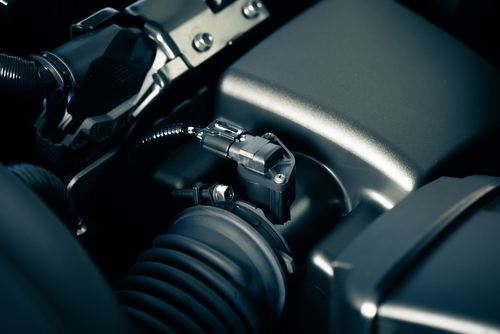
P0100 is a generic OBD2 trouble code that indicates an issue with your Hyundai Santa Fe’s Mass Air Flow (MAF) Sensor.
This code is usually caused by a MAF sensor that is faulty, dirty or a wiring issue related to it. It may be tempting to replace your Santa Fe’s MAF sensor without checking the electrical system and cleaning/testing it first, but it’s not guaranteed to clear P0100.
Hyundai Santa Fe P0100 Quick Info Table

| Definition | P0100: Mass or Volume Air Flow (MAF) Circuit Malfunction |
| Frequent Symptoms | Air Fuel Mixture Too Rich or Lean, Stalling, Can’t Find Idle, MIL Light |
| Common Causes | Bad or Dirty MAF Sensor, MAF Sensor Wiring, Vacuum Leak |
| Breakdown Risk? | Yes |
| Repair Difficulty | Moderate |
| Estimated Repair Cost (Parts) | Less than $200 |
P0100 Meaning

P0100: Mass or Volume Air Flow (MAF) Circuit Malfunction
P0100 is a generic code, so it has the same meaning for the Hyundai Santa Fe as any other vehicle with an OBD II system (1996+).
Mass or Volume Air Flow
The MAF sensor is responsible for metering the air entering the engine (density and volume). It compares the airflow measurement to a voltage value that the powertrain control module (PCM) understands.
Circuit Malfunction
P0100 indicates that the voltage value sent to the PCM is outside its normal operating range.
P0100 Symptoms

Here are the most common symptoms associated with the P0100 code in the Hyundai Santa Fe:
- Engine running rich or lean– A lean or rich condition can happen at idle speed or high RPM.
- Fluctuating idle RPM– When the PCM can’t determine how much air enters your Santa Fe’s engine, it’ll have difficulty keeping a consistent idle speed.
- Check Engine Light– P0100 usually appears with other fault codes, such as P0171 or P0172.
- Stalling
Hyundai Santa Fe P0100 Causes + Diagnosis

Here are the most common causes of P0100 in the Hyundai Santa Fe, presented to you from the easiest to most difficult to check.
1. Check the Electrical Connection
Check your vehicle’s MAF sensor wiring. It’ is usually pretty easy to get to. First, perform a visual inspection of the ground connection, feeds, and wiring.
MAF sensor wiring is often the victim of rodent damage (particularly in the winter).
2. Listen for a Vacuum Leak
If there is a leak in or around your Santa Fe’s intake manifold, it will be impossible for the MAF sensor to get an accurate reading. Without knowing how much air is getting into the engine, P0100 can be thrown.
Inspect the air intake system and intake manifold for obvious air leaks.
3. Check to See if the MAF Sensor is Dirty
Throughout its life, your Santa Fe’s MAF sensor will often get so covered in grime that it’ll no longer give an accurate reading. You can clean it, but you must use a dedicated MAF cleaner spray. Here’s a great article on how to clean one from Family Handyman: MAF Sensor Cleaning
Oiled air filters (such as K&N) can cause the MAF sensor to get dirty. If you use that type of filter on your vehicle, checking it should be the first thing you should do when you get P0100.
4. Test the MAF Sensor
While it is very likely that the MAF sensor itself could be the causing P0100 in your Hyundai Santa Fe, test it before replacing it. Here’s a video on how to test one without pulling it. Testing it is important for two reasons. The first is that they are expensive. The second is that it only takes a few minutes to test it with a multimeter. They are usually around $200 or less if you need one.
